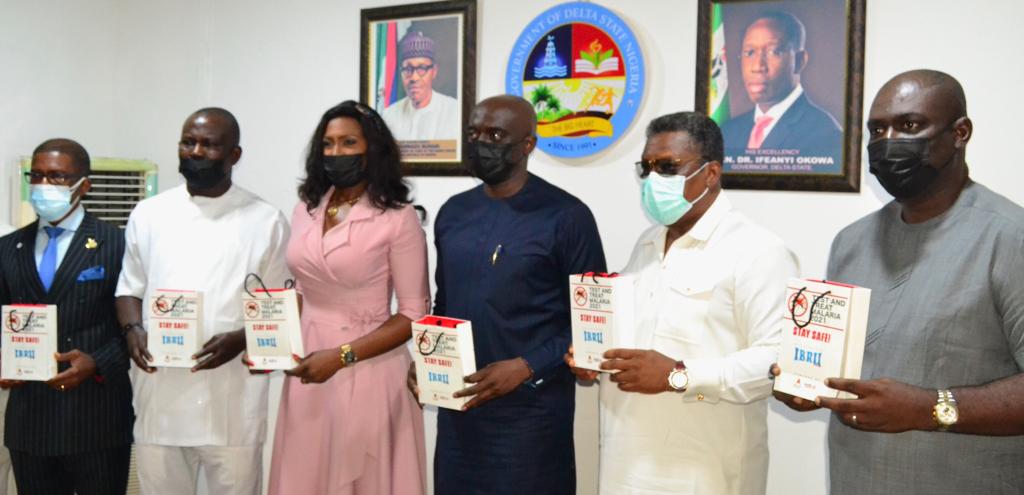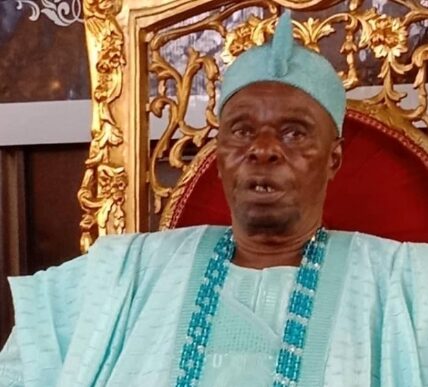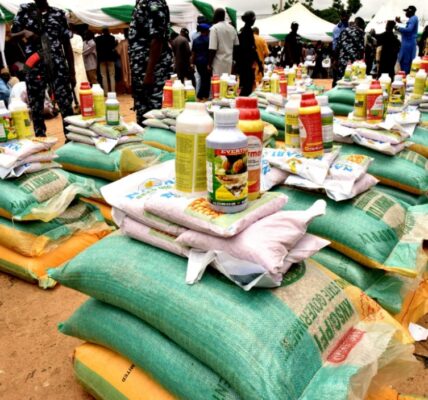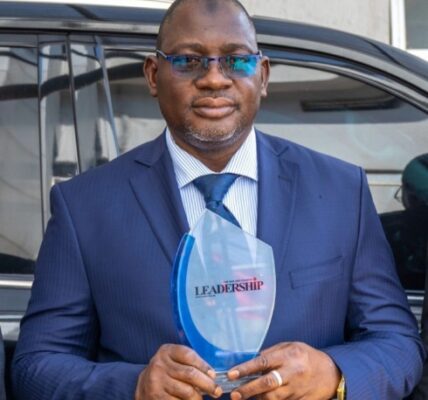This post has already been read 21166 times!
In line with the National Malaria Elimination Programme (NMEP) and the World Health Organization’s standards for the controls of Malaria pandemic in Nigeria, the Delta State Government has taken delivery of some kits and Malaria user-friendly medical products from the founder, NESH/Director, Fyodor Biotechnologies, Mr. Emeka Ogwu-Oju, who in the company of Hon. Kenneth Ibru, representing Ibru Foundation; Mrs Ebele Enemchukwu, Dr. Mordi Ononye, Commissioner of Health, Delta State; National President of ALGON Hon. Kolade Alabi ably represented by Hon. Itiako Malik Ikpokpo, Chief of Staff to President, ALGON through the founder WABIO Foundation; Barrister Chiedu Ebie, who doubles as the representative of Governor Ifeanyi Okowa and his Secretary to the State Government, Delta State.
During the event, Governor Okowa used the opportunity to appreciate the efforts of the stakeholders and facilitators who in his words were ‘Delta friendly’ and benevolent.

The Governor pledged the support of the state to strengthen the awareness campaign and have wider coverage across the state.
It will be recalled that Nigeria is among the top high burden countries and one of the two epi-centers of malaria transmission across the globe.
It has since the year 2000, continued to make progress in the fight against this preventable disease of which Malaria has been widely identified as almost high risk in the country of which its success story is incomplete without the mention of Malaria interventions by key stakeholders, Governments, donor agencies, NGOs and international partners and so on.
Bearing in mind that it is a critical target of the Sustainable Development Goals, there have been some landmark improvements with renewed interest in research and innovations in diagnostic methods, drugs and vaccines, and the development of control measures to eradicate malaria.
This was the trust and driving force of the donor the Ibru Foundation hence the supply of its Test and Treat Malaria Kit to the state.
Speaking at the event the Founder NESH and IBRU Foundation were all of the views that Malaria is one of the most severe global public health problems worldwide, particularly in Africa, with Nigeria having the greatest number of malaria cases.
They stated that the community-based study so far carried was designed to investigate the prevalence and risk factors of malaria and to evaluate the knowledge, attitudes, and practices (KAP) regarding malaria among rural communities in Nigeria.
NESH has continued with the implementation of a cross-section of community-based study which was conducted with considerations on demographic, socioeconomic, and environmental information as well as KAP data were collected using a pre-tested questionnaire.
It seeks to provide massive awareness on the dangers of not using insecticide-treated nets (ITNs), and having no toilets in the house. Its channels of transmission, symptoms, and prevention of malaria, respectively. It was agreed that nipping it in the bud will yield a far-reaching result.
It is in a bid to fast-track the fight against malaria, that ALGON through the National Executive Council approved the participation of the association in hope of its trickle-down effect to the grassroots when implemented.
In the event, The representative of Hon Alabi Kolade David, ALGON National President who is the Chief of Staff to the National President had called for effective implementation, funding, and massive sensitization of the rural populace, Hon. Itiako Ikpokpo noted that information dissemination channels and right massaging on how to use the Kits and treatment will create a good opportunity for the communities to get informed and participate, noting that to ensure zero Malaria in Nigeria, funding was also a key driver.
He appealed to all councils and local governments to seek the support of their state Governors to identify with the kind of gesture from IBRU and WABIO Foundation as well as NESH to build synergy and explore channels of engaging such gesture.
He observed that by participating of the LGAs and Councils, the programme may offer a better hope to speedy eradication of Malaria which he also stated must include the pre-Implementation, procurements, awareness, in-process monitoring using Key Performance Indicators (KPI) and Quality Assurance Survey.
He conclude that such gesture will facilitate identifying how best to tackle Malaria scourge, and bring about communicating behavioral change and response to amongst Malaria ecosystem as well as understanding its health outcomes for better life and development of the rural populace.






